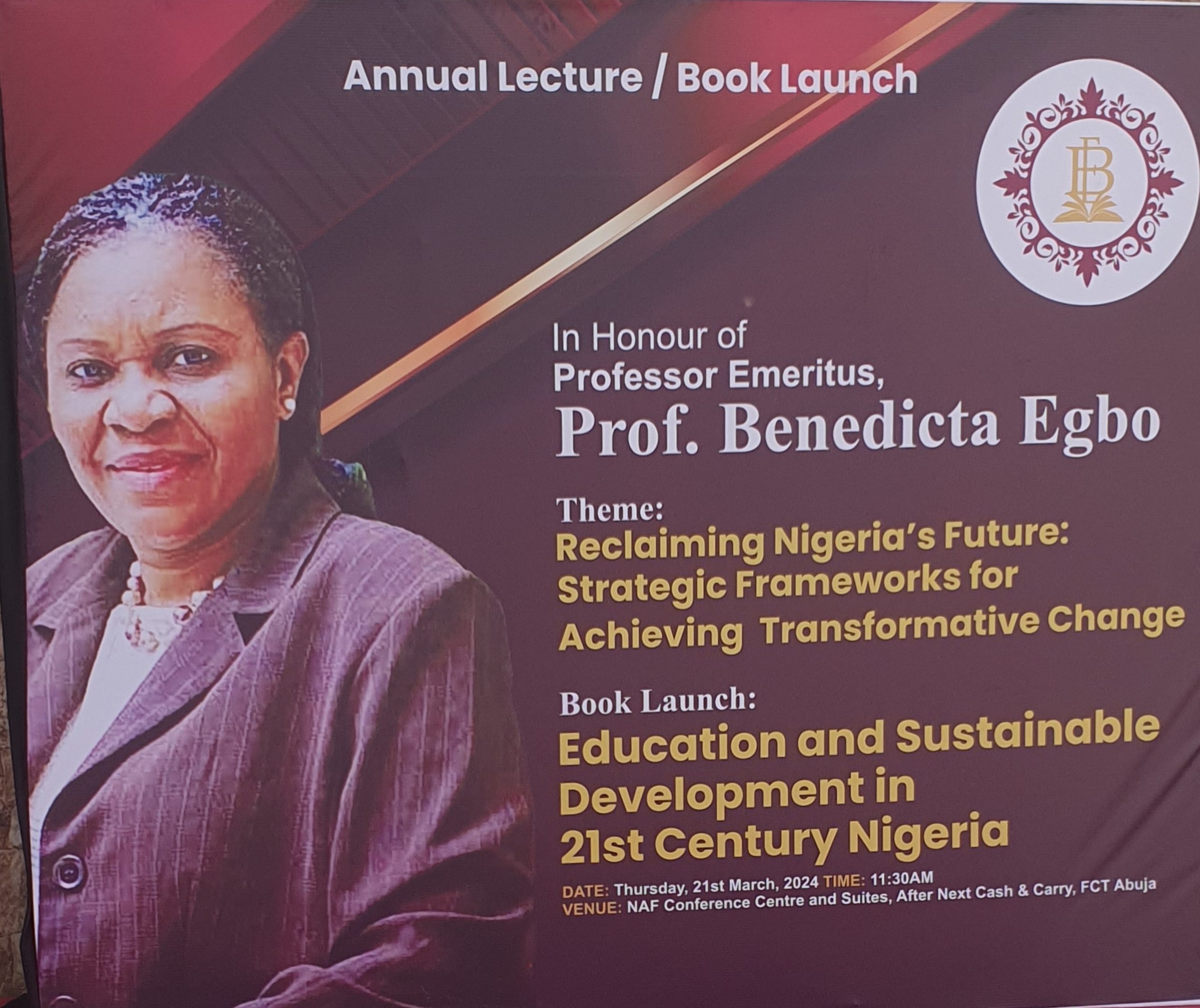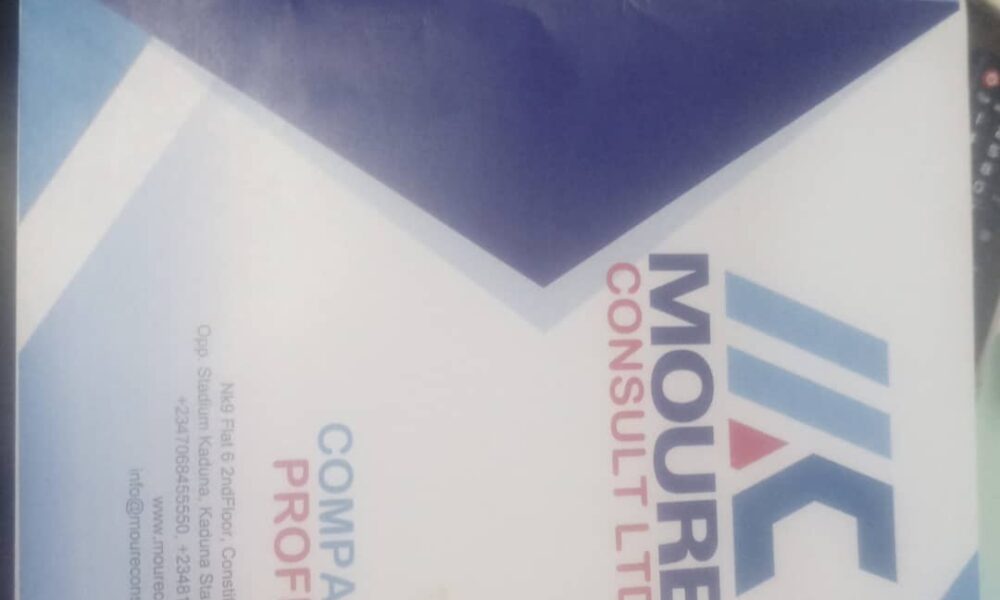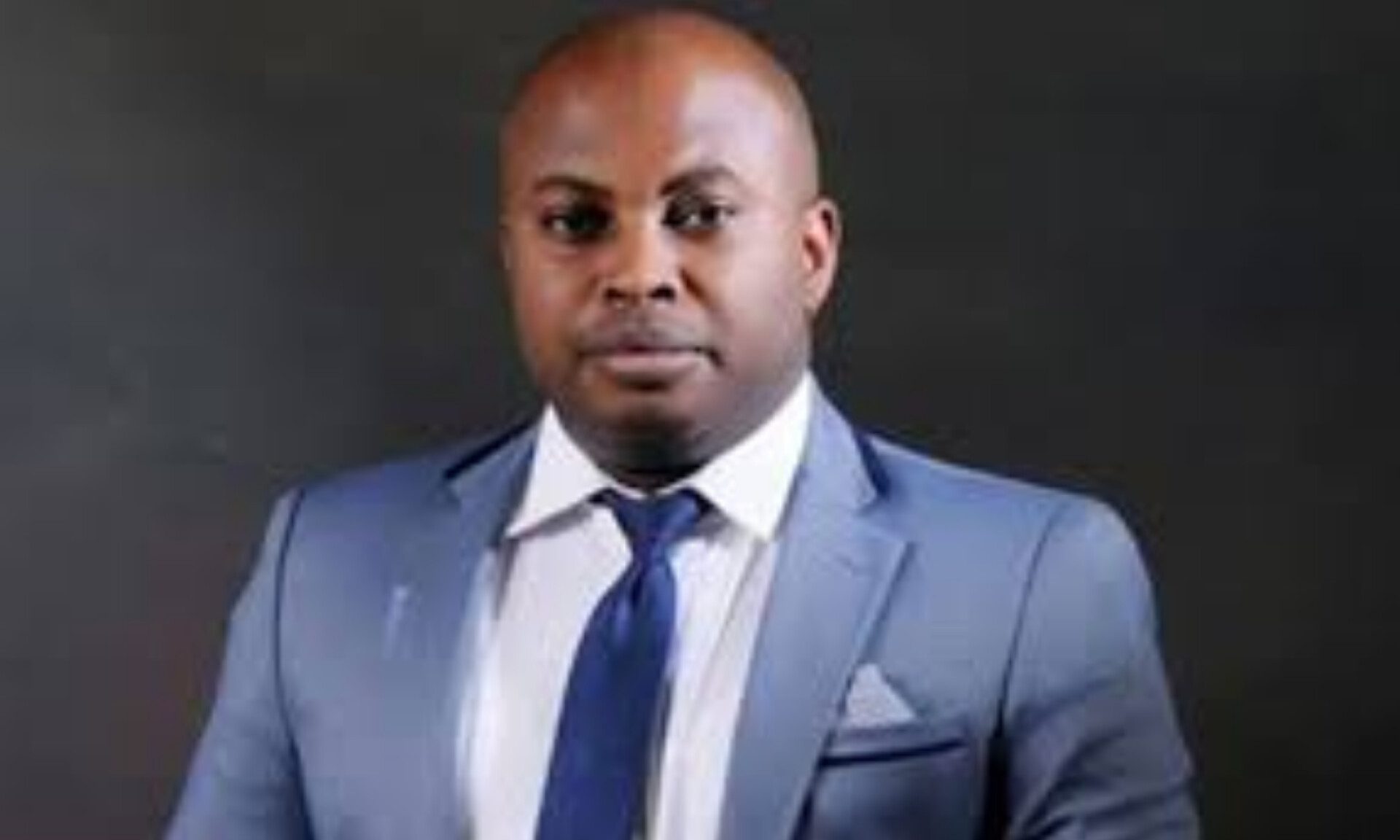***Nigeria cannot get it unless those voted are the ones declared
Unless and until who is voted by the Nigerian people whether Local Government chairman, as a governor, as a president are the ones declared, unless that happens we are not getting anywhere, Prof Don McWarra has indicated.
Speaking on Thursday at the annual lecture and Book Launch in honour of Prof Emeritus Benidicta Egbo with the theme Reclaiming Nigeria’s Future: Strategic Framework for Achieving Transformative Change, the professor of governance, McWarra who was a discussant at the lecture said for that to happen, INEC for example needs somebody who is resolute as Chairman.
Comparing Professor Attahiru Jega with his predecessor Mahmood Yakubu, he said it was a misplacement of order not to have looked out for another experienced person as Jega.
“When Attahiru Jega left we were supposed to have brought in somebody his level so that he can continue, but I am not sure many of you will agree with me here Yakubu was or is a match to Attahiru Jege.
“Mahmood Yakubu came from NDA but Jega was Vice Chancellor in Bayero University Kano (BUK), he was National chairman of ASUU at least he has been an activist in a Vital office, he had the credentials of running INEC with less corruption. He could resist some things, but Mahmood from ETF to, no common please.
“This thing, I have nothing against Yakubu as a person, the truth of the matter is working in public office in Nigeria is a hell of challenge because even without solicitation they will come to give you and after they have given you whether you like it or not they will count on you as their paddy, if anything is going on they will expect you to play ambassador for them.
“So what is the way forward? We need to make this 2024-2027 mandate to work. If the government is not looking for the kind of ideas that will make this country work then the national assembly should impeach them.
“I got kids there in Anerica though but they are Nigerians, I came back because I don’t want tomorrow my kids will say when Nigeria was sinking what did you do? I can wait for that question. You don’t know all the pressures I got since I came back.
“The truth is, this country can be made to work and very easily. All the ideas that are not getting to this government is because the previous government messed up contributions from intellectuals. “You put up a proposal and send to government they will transfer the proposal to another letterheads paper mess it up collect the money and create the impression they are attending to it and wait and wait. It happened to me, when Babgana Kingibe was SGF
“When Yayale Ahmed took over Ibrahim Tahir got a paper and asked me to go and coordinate when I went they told me they did not get the paper. I hope this coubtry knows whom Ibrahim Tahir was. What is the point, the point basically is
“We must be sincere with this country. This country is been generous to everybody including nonNigerians. Why are Nigerians greedy to her? What is all this selfishness? Somebody will go and carry $90b what the hell are you going to do with that? Where are statching it to? Is that not madness? Even $1b, even $500m what would a person do with it?

“I had an opportunity of offer of a job as executive Chairman of NCC I turned it down, that was during Yaradua’s time, they went to Kaduna and discussed it and said, Prof you are in Nigeria now, I said that job requires very deep functional knowledge of law and of Electronics and electrical engineering, I am a professor of governance.
“I will not go and sit in an office and getting files without knowing what the files are telling me. They were shocked but at the end of the day late Dr. Ibrahim Tahir, Talban Bauchi, got across to me he apologized..
“Nobody should tell you anyday, anywhere that our military is the cause of the problem, it is not correct because people who knows what statecraft is, it is founded on military tradition. You flag, your coat of Arms, your anthems, they are all from the military, those are the things that identifies the country.
“Nigerians are in Ghana now, once they see the Green-White-Green nobody tells them who is that. They are Nigerians, it came from the military.
“Those who have built this world to where our generation is today are generals, the French were nowhere until Napoleon Bonaparte came. Wilson Churchill did not make his name as an academic but he didn’t make his name in teaching but he made his name in the 2nd World War.
“George Worthington the first President of the United States was a general, Why am I doing all these? I am telling you so that you understand what the foundation of a functional State is.
“Order, law and order, it doesn’t come from Civillians, it is military, anywhere you open your eyes and see someone in uniform whether you like or not you have to organise yourselves. “What is the problem today, if they talk about education at the foundation level we have stopped to teach Civics in school. At St. Theresa Primary School in Jos if you fail civics you will not get lashes only in class you will meet it at home with your parents.
“I went through it, I am not telling you what I was told. Because civic was the thing that made you a citizen. It makes you to know your country to respect law and order, to understand what honor. All the prominent countries around the world today are built by value not by money.
“I am saying we don’t need to buy aircraft if we can not enter a taxi comfortably. We are struggling to run faster than our shadows, it doesn’t work.
“You are hungry you have not had two meals a day you want to behave like somebody who have options of what to eat, no it does not work like that.
“Please look for food first, when the energy is there this thing will work better. That is the way it works. Now we had democracy a lot of people are lampooning.
On his part, the Professor of Political science and senior Fellow, Center for Democracy and Development Prof Adele Jiandu in his keynote address at the event said,
“We cannot talk of “reclaiming Nigeria’s Future” without beginning with, and without casting a retrospective searchlight on our past. This will enable us to understand where we have from and where we are now, today, and why; the challenges, the missed opportunities and contradictions of our politics and development. “My approach, doing so, is to draw the large picture that emerges, against the backdrop of the equally considerable massive disenchantment, the revolution of rising expectations in the country, the deepening moral decay in virtually all our institutions, secular and religious, and in state and society, prey to an unconscionable materialism that only serves to debase us as citizens.
“While the large and generalized picture that emerges will obscure the details and the specific, it should, nonetheless, be useful in serving the strategic objective of directing “ a sharp pencil of light, which brightly illuminates a limited area of a country’s political life before fading into a penumbra, where the features are obscured,” to appropriate Professor Sam Finer’s apt expression, in another context about the political significance of the constitution as a guide to political behaviour.
The “ sharp pencil of light,” which the general picture I shall draw, will hopefully “brightly illuminate,” is one aspect of our public life, so critical to understanding where we have come from, where we are, and what navigational aids to utilize in mapping the pathways, from the crossroads we now are, that will direct us to where to reclaim Nigeria’s Future.
“My basic argument is two-fold. The first part is that Nigeria’s constitutional and political history since 1950 continues to be problematic and far removed from the combination of liberal and social democratic principles and objectives elaborated in the country’s constitutions, especially since 1979.
“This is because the defining characteristic of Nigeria’s politics since then is the failure to compact significantly unproblematic political succession and to sustainably nurture and strengthen political institutions in state and society to serve as sentinels of democracy and federalism.
“The second part that this problematic political succession is, in turn, a major contributor to the crisis of democracy and federalism in Nigeria and from which Nigeria’s political future must be reclaimed.”
This he explained is because the political culture driving the political succession problem, reduces politics to a lawless and immoral vocation.
“It is a vocation which (a) rejects the separation of public administration from politics, through the abuse of state power for partisan political party electoral advantage and for corrupt personal enrichment and the creation of war chests for electoral politics, which is pursued as war by other means, by incumbents in power and their opponents.
This he said has made the democracy to go through the kleptocratic tendencies of public political officeholders, responsible for the huge deficits in human development, as evident in Nigeria’s poor scores under the various international measures and rankings of performance under the MDGs and the present SDGs and other indices of good governance.
Explaining further he said there is much to be said for the view that the fundamental governance and development problem in Nigeria has less to do with constitutional design than with cultivating and nurturing a people-centred political culture, which binds and restraints all particularly the public authorities and public political officeholders, through their respecting and faithfully complying with “the spirit of the law.”
“What this means is that we should go beyond viewing the constitution as only a legal document, to viewing it also, an more significantly and sustainably in the Aristotelian sense of the constitution as a moral anchor, a sacred covenant on which to firmly ground the pursuit of politics as a vocation in search of the public good or res publica;. in other words, a reflection of and driven by our collective enlightened self-interest.
“As Rousseau so aptly contends in his philosophical treatise on Education, Emile, “…those who would like to treat politics and ethics separately will never understand anything about either of them.”
“Rousseau underscores this categorical moral imperative in its application to politics, properly understood, in another philosophical treatise, The Social Contract, as follows “…it is only when the voice of duty replaces physical impulse and right supplants appetite that man, who up till then had considered only himself, finds that he is forced to act on different principles, and to consult his reason before listening to his inclinations.”
“Our obligation as citizens, in line with this statement about the applied ethical moorings of politics, properly understood, is to begin to turn critical searchlight on the material, cultural, normative, and social anchors and pressures that will strengthen a social democratic political culture, in line with the vision and stipulations of Chapter II of our 1999 Constitution, The Fundamental Objectives and Directive Principles of State Policy, if we are to reclaim and, indeed salvage Nigeria’s political future. ”




